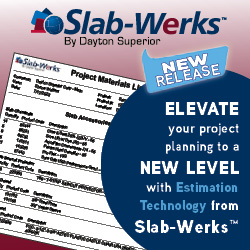Facilitating Community Action
Español | Translation Sponsored by TCA
“I Have Looked Upon the Community as the Unit of Social Organization in Which Lies the Greatest Element of Hope for Permanent Progress.”I

Following our virtual gathering in October of 2020, I wrote a letter expounding the importance of being a community. On the surface, it’s obvious and could be dismissed as promotional rhetoric but, for me, the idea of community continues to be at the forefront of my work with this association. I am, at the core, a community organizer.
Eduard C. Lindeman articulated the definition of community organization in 1921 as such: “Those phases of social organization which constitute a conscious effort on the part of a community to control its affairs democratically, and to secure the highest services from its specialists, organizations, agencies, and the institutions by means of recognized interrelations.”
I share this definition with you to highlight two important elements, the first being that our effort is purposeful. Otherwise said, we work intentionally to serve our industry and each other beyond what could be expected from haphazard partnerships and individual efforts. Secondly, we do so through programmatic collaboration—planned activities aimed at highlighting the ways in which our work affects one another. We rely on these interactions to identify the needs of the community and, in turn, develop solutions as the community.
If you were in St. Louis this past September for the TCA convention, you heard Barclay Gebel, FTCA, share a need to consider subgrade capacity related to the crane’s ground-bearing loads during construction. In that moment, Barclay proposed language for a collective statement from the industry, and the 400+ professionals in the room took the opportunity to comment and discuss. There was an invitation from Chad Bruce, who presented on issues surrounding the use of adhesives on slabs of varying surface energy, to join the research and investigation. The work of Dr. Maguire and a collection of engineers and manufactures of composite panel connectors was presented. Finally, a selection of young professionals shared stories concerning the employment of their generation and workplace culture.
My point in referencing these moments is to declare again that this is the work of our community. The TCA does not exist as some remote entity operating autonomously in favor of the industry. Organizations like this only exist through the active participation of its constituents.
Joseph K. Hart wrote on the role of the community organizer in facilitating this function when he said, “This task of community organization involves the development of social order inclusive enough, rich enough, varied enough, stimulating enough to reach every normal human being.”ii To that end, we have focused on programing that enhances access to the cross-disciplinary resources of the TCA—programming that connects us to share stories, debate, celebrate, and innovate. As we near the new year, I encourage you to recommit to this community through active participation. Log in, sign up, show up. Be part of the community. The most significant and impactful work will come from our collective voice, rich in inclusivity and varied experience.
Best regards,

iEduard C. Lindeman, The Community: An Introduction to the Study of Community Leadership and Organization (New York: Association Press, 1921), 139, 173.
iiJoseph K. Hart, Community Organization (New York: The Macmillan Company, 1920), 50.








